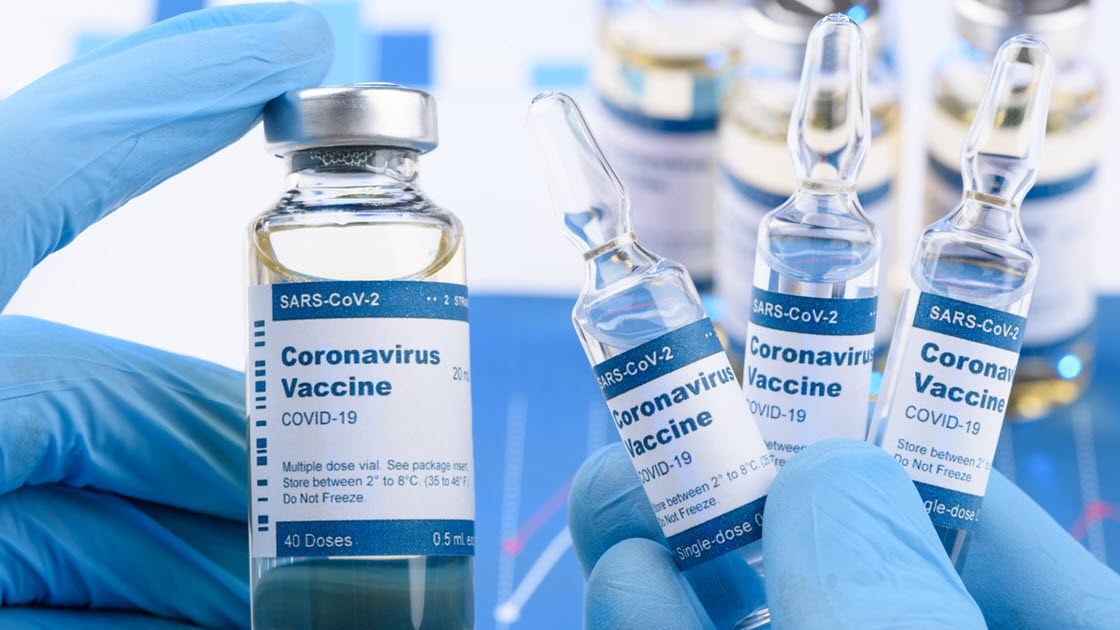
Vaccinations: Winning Faith, Trust and Credibility
A look at the history of global pandemics
By Shubha Kerkar MD, FIDSA, FACP, AAHIVS
The possibility of control and eradication of the current global pandemic of coronavirus (SARS-CoV2) is now a distinct reality because of two promising vaccines that have shown safe and effective performance in preventing 95 percent of infections in preliminary data of phase 3 trials.
How will these vaccines work?
Vaccination prepares the human immune system to combat specific infections. In addition to the very basics, such as barriers to exposure with facial covering/masking, physical distancing and handwashing, vaccination is a powerful tool in the armamentarium of defenses against COVID-19.
Both the Pfizer and the Moderna vaccines are based on a novel platform using “messenger” RNA to create vaccines (mRNA). They do not use the live virus or even any particle of a virus. They do not affect or interact with our DNA in any way. mRNA never enters the nucleus of the cell, which is where our DNA (genetic material) is kept.
The cell breaks down and gets rid of the mRNA soon after it is finished using the instructions.
COVID-19 mRNA vaccines give our cells instructions to make a harmless piece of “spike protein,” which is found on the surface of the virus that causes COVID-19. COVID-19 mRNA vaccines are given in the upper arm muscle. Once the instructions (mRNA) are inside the muscle cells, the cells use them to make the protein piece. In a placebo-controlled clinical trial where 30,000 to 40,000 volunteers in vaccinated vs. unvaccinated groups, there was a total of 100 infections, five in the vaccinated group and 95 in the placebo group. All volunteers who received the vaccine experienced no serious side effects, thus proving safety and efficacy.
What does history tell us?
In the real world, however, vaccines are only as good as the ability to be accepted by everyone. Winning faith and trust in vaccines depends on the credibility of the doctors, scientists and experts, and their ability to educate and help calm fears. Once accepted, then the details of how to administer to the entire world population are practical challenges.
History tells us that vaccine strategies have successfully eradicated some of the deadliest infections on Earth, including smallpox, polio and measles, in times of scarce resources. The concept of vaccination was first noticed by the famous Dr. Edward Jenner in 1796 when he gave “lymph fluid” obtained from a milkmaid who had cowpox to James Phipps and established that he developed protection from smallpox.
In 2020, we celebrated the 40th anniversary of the eradication of smallpox, a deadly disease causing global pandemic for thousands of years. Worldwide vaccination was carried out in an era of no computers, no internet, no easy overseas transportation – all on foot – and simply targeting the world’s population one person at a time. Of course, now, the challenges are different.
What are we seeing today?
Today, as I look around, not everyone is willing to accept vaccination as a silver lining in the dark cloud of this global pandemic. Perhaps there is no clarity, only doubt and mistrust, due to misinformation filtering through the current geopolitical scene, civil conflicts and social media, thus creating confusing layers.
I remind all to look back in history: When Dr. Jonas Salk discovered the polio vaccine, 70 million mothers stood in line to get their children vaccinated – even before the benefits were confirmed. Infantile paralysis was a devastating condition seen every year prior to that. Thanks to the polio vaccine – and the trust in that vaccine – today, it is part of childhood vaccination, providing 100 percent effectiveness in preventing polio.
It is not just us here in the valley, our state or county. We must focus and be part of collaborative international cooperation and the contribution of global intelligence and unite in celebrating this great discovery. We must educate ourselves, gather all the courage and will to educate and counsel each other, and slowly win faith and trust in the possibility of prevailing in this battle against the COVID-19 pandemic.
Dr. Kerkar is director of infectious diseases at Desert AIDS Project and an infectious disease consultant at Desert Regional Medical Center and Eisenhower Health. For more information on vaccinations visit www.cdc.gov/vaccines.

Shubha Kerkar, MD, MS
Physician, FACP, AAHIVS, FIDSA
Shubha has been performing infectious disease consultation since 1991 and has the distinction of having been a part of DAP since 1993 when she joined us as a part-time infectious disease consultant. Her practice is primarily focused on inpatient or hospitalized patients at both Desert Regional Medical Center and Eisenhower Health where she cares for individuals with serious infectious diseases. Once these patients recover and leave the hospital they continue on their path to a healthier life by transitioning to Shubha's office-based skilled management program at DAP. Click here to learn more about Dr. Kerkar.








